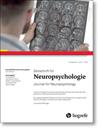Understanding functional illiteracy from a policy, adult education, and cognition point of view: Towards a joint referent framework
IF 0.5
4区 心理学
Q4 CLINICAL NEUROLOGY
引用次数: 4
Abstract
Abstract. The article discusses the emergence of a functional literacy construct and the rediscovery of illiteracy in industrialized countries during the second half of the 20th century. It offers a short explanation of how the construct evolved over time. In addition, it explores how functional (il)literacy is conceived differently by research discourses of cognitive and neural studies, on the one hand, and by prescriptive and normative international policy documents and adult education, on the other hand. Furthermore, it analyses how literacy skills surveys such as the Level One Study (leo.) or the PIAAC may help to bridge the gap between cognitive and more practical and educational approaches to literacy, the goal being to place the functional illiteracy (FI) construct within its existing scale levels. It also sheds more light on the way in which FI can be perceived in terms of different cognitive processes and underlying components of reading. By building on the previous work of other authors and previous definitions, the article brings together different views of FI and offers a perspective for a needed operational definition of the concept, which would be an appropriate reference point for future educational, political, and scientific utilization.从政策、成人教育和认知的角度理解功能性文盲:走向一个共同的参考框架
摘要本文讨论了20世纪下半叶工业化国家功能性扫盲结构的出现和文盲现象的重新发现。它提供了一个简短的解释,说明结构是如何随着时间的推移而演变的。此外,它还探讨了认知和神经研究的研究话语,以及规范性和规范性的国际政策文件和成人教育对功能性识字的不同看法。此外,它还分析了识字技能调查(如一级研究或PIAAC)如何有助于弥合认知方法与更实用和更教育的识字方法之间的差距,目标是将功能性文盲(FI)结构置于其现有的量表水平内。它还揭示了从不同的认知过程和阅读的基本组成部分来感知FI的方式。在其他作者先前工作和先前定义的基础上,本文汇集了对FI的不同观点,并为该概念的必要操作定义提供了一个视角,这将是未来教育、政治和科学利用的适当参考点。
本文章由计算机程序翻译,如有差异,请以英文原文为准。
求助全文
约1分钟内获得全文
求助全文
来源期刊

Zeitschrift Fur Neuropsychologie
CLINICAL NEUROLOGY-PSYCHOLOGY
CiteScore
1.00
自引率
25.00%
发文量
17
期刊介绍:
In der Zeitschrift für Neuropsychologie werden aktuelle Forschungsergebnisse sowie Reviewartikel aus dem Bereich der experimentellen und klinischen Neuropsychologie sowie angrenzender Gebiete (z.B. Biologische Psychologie, Neurologie, Neuropsychiatrie, Neuropsychopharmakologie, Rehabilitationspsychologie) publiziert.
Die Beiträge sollen gleichgewichtet sowohl die human- und tierexperimentelle Grundlagenforschung, als auch die klinische Forschung und die klinische Praxis berücksichtigen. Der klinische Schwerpunkt liegt auf der Diagnostik und Rehabilitation von kognitiven und affektiven Störungen, wie z.B. von Aufmerksamkeit, Gedächtnis, Planen und Problemlösen, Sensomotorik, Wahrnehmung, Emotionalität und Sozialverhalten.
 求助内容:
求助内容: 应助结果提醒方式:
应助结果提醒方式:


